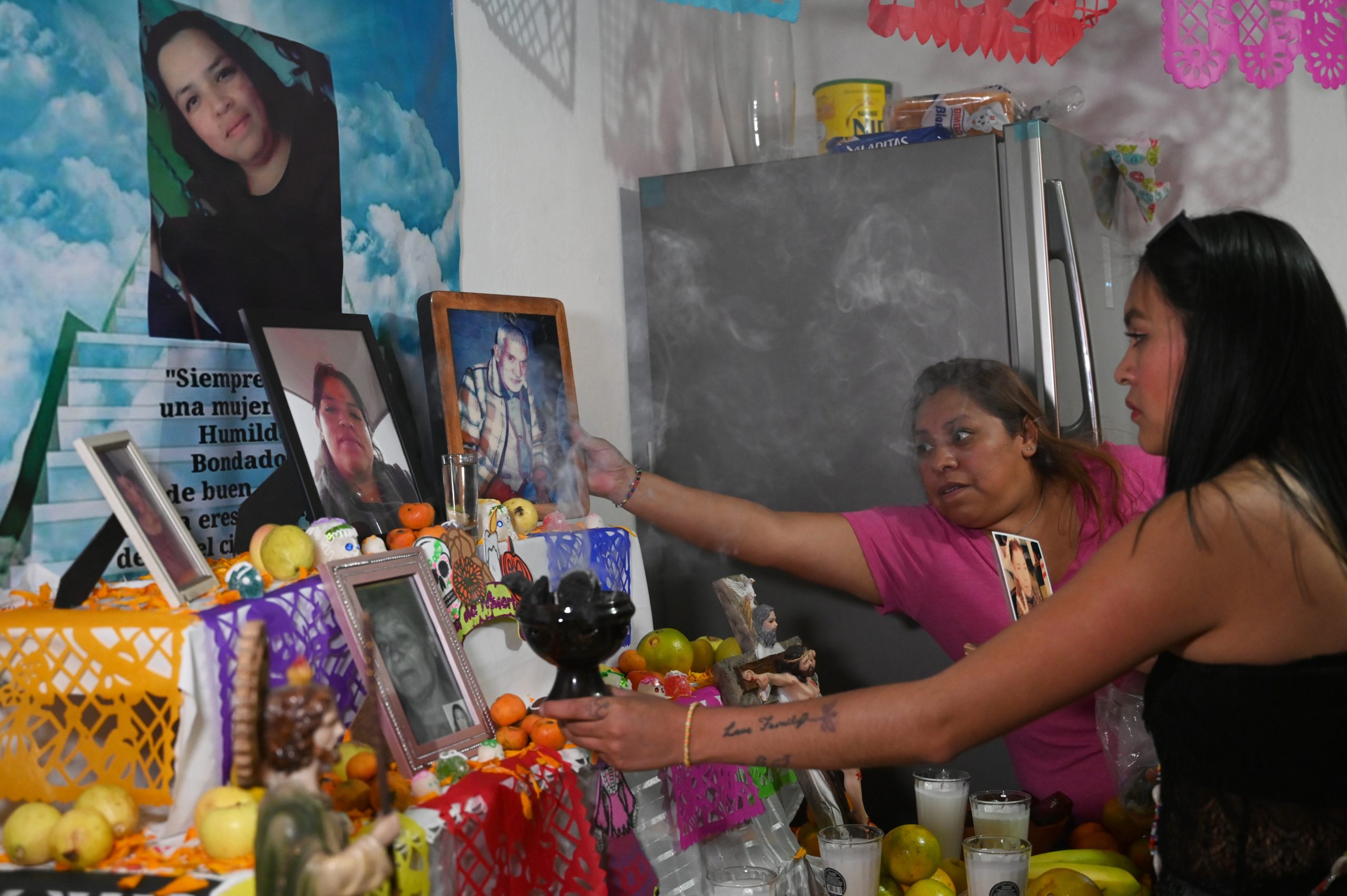In land of ‘manana,’ pandemic sparks rush for wills

Relatives of Alma Delia Romero Sanchez, who died from COVID-19, prepare an altar in her honor for the Day of the Dead, in Mexico City, on October 25, 2020. – This year Mexicans dedicate their traditional Day of the Dead altars to COVID-19 victims. (Photo by RODRIGO ARANGUA / AFP)
MEXICO CITY, Mexico — Fear of dying from the coronavirus led Laura Villa to finally get around to doing what many Mexicans had put off until the pandemic struck — making a will.
While Mexicans happily accept a gift of a sugar skull with their name on it for the Day of the Dead celebration, they are less comfortable talking about matters of inheritance when it comes to discussions of death.
“We Mexicans often leave things until ‘manana’ (tomorrow) and don’t like to talk about wills. It’s a bad omen,” said Villa, a 49-year-old financial sector worker, and mother of two.
Only five percent of Mexicans with assets to bequeath have drawn up a will, according to the Mexico City notaries association.
As well as being superstitious, many Mexicans see legal procedures as expensive and cumbersome.
Article continues after this advertisementAs a result, many Mexicans inherit conflicts spanning generations.
Article continues after this advertisementSome spend decades living in the homes of their late parents with no property deeds.
‘Now’s the time’
For years, authorities and notaries have staged campaigns and offered assistance and discounts to encourage people to put their affairs in order.
The coronavirus has achieved what they failed to do, with applications to write a will up almost 60 percent, said Luis Antonio Montes de Oca, head of communications for the capital’s notaries association.
“We’re all going to die and when we see it coming closer like with COVID-19, people worry more,” he told AFP.
At the start of September, Villa formalized her last wishes after paying $118.
“I thought, ‘I’m not going to die now. I’m healthy.’ But seeing the pandemic made me decide now’s the time to make a will,” she said.
With almost 90,000 deaths, Mexico has the world’s fourth-highest coronavirus toll. Around 900,000 infections have been officially recorded in the country of around 128 million.
Montes de Oca, who is a notary, has processed about 140 wills so far this year, compared with 90 in 2019.
The pandemic invariably comes up in his conversations with clients, one of whom was bedridden due to the virus.
After a video call in which the patient dictated his will, the notary put on personal protective equipment to visit him, read him the document, and have him sign it to make it legal.
“I was very afraid. To avoid infection I asked him to use his own pen to sign so I didn’t have to lend him mine,” the lawyer said.
“The best thing is that my client recovered,” he added.
‘Reaction of panic’
Dying without leaving a will can cause a serious headache for surviving family members because without deeds, the property cannot be sold or rented out.
Sorting it out is relatively easy when family members agree, but time-consuming and expensive in the event of disagreement.
Mexico City authorities have created a special inheritance unit to deal with the issue, including cases of coronavirus victims who left no will.
Many people are now scrambling to avoid leaving grieving relatives with an administrative nightmare.
“There’s been a reaction of panic during the pandemic by people wanting to do everything now,” said the unit’s head, Antonio Ramirez.
“They want to do it so others don’t inherit the problem.”